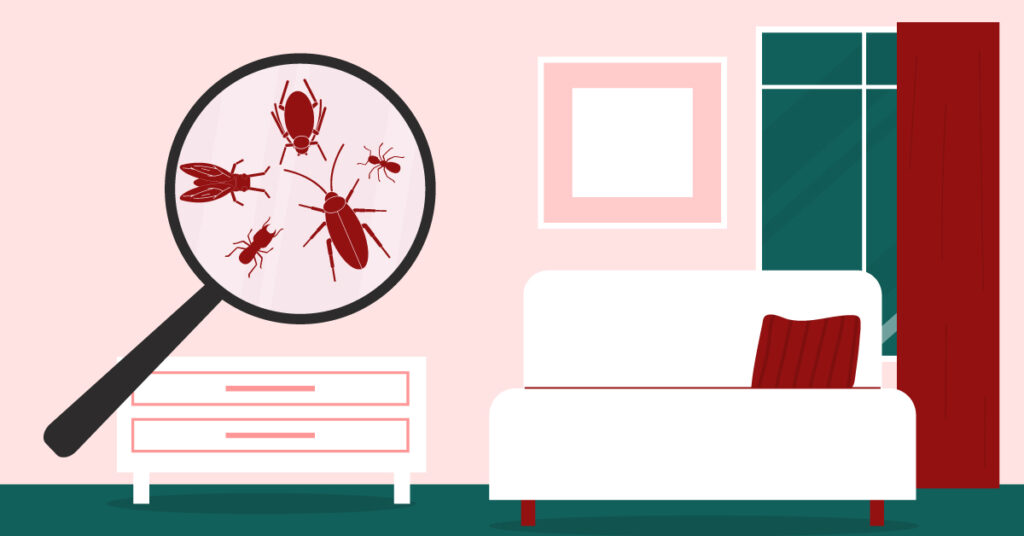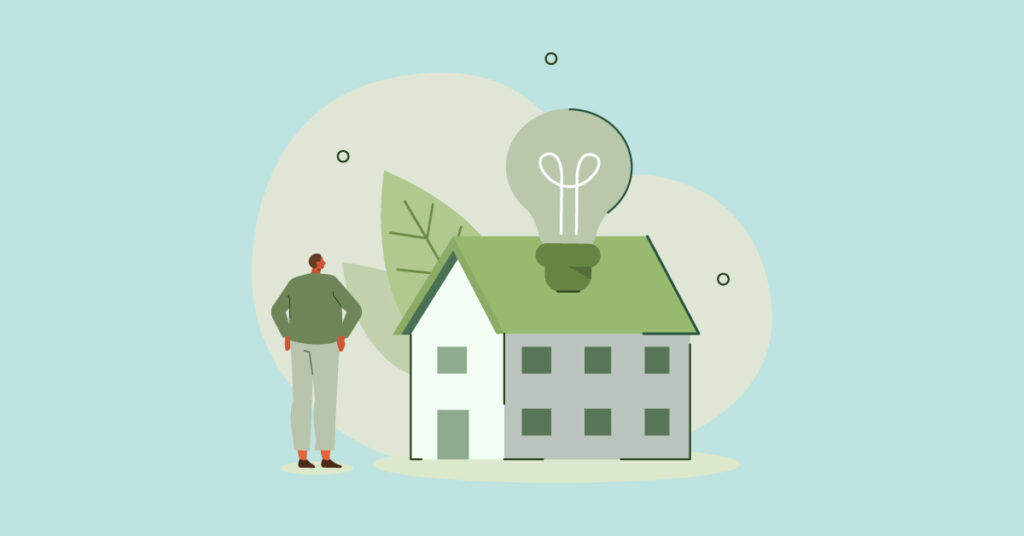Going on vacation is exciting, but coming home to a disaster – whether a break-in or a burst pipe – is every homeowner’s nightmare. Unfortunately, many travelers overlook the importance of home preparation. In an ADT survey, more people remembered to water their plants (40%) or pack sunscreen (39%) than to set their home security alarm (only 28% did). It’s no surprise, then, that nearly one in five Americans reported having a home break-in during a past trip, and 22% discovered stolen packages upon their return.
Even beyond crime, an empty house is vulnerable – water damage and other mishaps account for approximately 28% of homeowners’ insurance claims, far more frequent than theft (which occurs under 1%). To truly relax on your getaway, it’s essential to secure your home against intruders and protect it from common maintenance issues. We will walk you through practical steps to protect your home while you’re away.
Know the Risks When Your Home Is Unoccupied
Before we dive into the tips, let’s understand why preparation is important. Burglaries tend to spike during vacation season. In fact, the summer months (July and August especially) see the most break-ins, whereas February has the fewest. Overall, U.S. police data indicate that over 847,000 burglaries were reported in 2022, with the vast majority occurring when no one was home. Thieves know an empty house is an easy target.
It’s not just burglars you need to worry about. Homeowners often return from trips to find that leaks, storms, or power outages have caused damage to their property. Water damage is actually one of the most common home insurance claims – roughly 1 in 60 insured homes files a water-damage claim each year.
Continue below as we cover how to secure your home against break-ins and how to maintain it to avoid mishaps during your absence. Consider this your friendly pre-vacation checklist, so you can jet off with peace of mind!
Securing Your Home Against Burglaries

Making your home appear occupied and difficult to break into is the most effective way to deter burglars. Here are some security tips to implement before you leave:
Double-Check Locks On All Entries
It may sound obvious, but an alarming number of burglars enter a home through an unlocked door or window. So ensure every door and window is locked securely – including the garage, basement, and second-floor windows.
Consider installing deadbolts on exterior doors if you don’t have them, and use window pins or locks for sliding windows. Don’t forget to lock the door from your garage into the house.
Use Smart Locks Or Hide Keys Wisely
Fumbling with keys at the last minute? A smart lock lets you lock up (or double-check status) via your phone, so you won’t wonder on the plane, “Did I lock the front door?” If you have someone checking the house, you can give them a temporary access code instead of putting a spare key under the mat (a spot every burglar knows to check).
Smart locks also give you the power to remotely unlock for a neighbor or house-sitter and then lock up again. If you don’t have smart locks, at least give spare keys to a trusted friend rather than leaving them outside.
Set your Alarm System (Or Get One)
If you have a security system, arm it before you go (add it to your checklist so it’s not forgotten). Many modern systems have smartphone apps that allow you to verify it’s armed and receive alerts.
If you don’t have an alarm, consider investing in one, even a basic DIY alarm or cameras. It can dramatically reduce your risk. Even the sight of a security company sign or window decal can make a thief think twice.
Light Up The Exterior
A dark, unlit home is a giveaway that no one’s there at night. Install motion-sensor floodlights around your home’s exterior and set some lights on timers inside. Traditional plug-in timer switches are inexpensive, or consider using smart bulbs or outlets that can be scheduled (or controlled remotely).
Having a few lights (and even a radio or TV on a timer) turn on in the evenings will create an illusion of occupancy. One tip: set lights in different rooms to turn on at different times, rather than using a single static lamp that turns on at the same hour every day – burglars can notice overly predictable patterns. Many smart home apps can randomize the schedule slightly each day.
Secure doors And Windows
Beyond locks, make sure your doors are sturdy. If you have a flimsy door or weak door frame, consider reinforcing it with longer 3-inch screws in the strike plate and hinges (to resist kick-ins). Sliding glass doors can be secured by placing a wooden dowel or security bar in the track.
Close blinds and curtains on ground-floor windows so would-be intruders can’t easily scope out your belongings or see that nobody’s around. However, leave some curtains slightly open on upper floors with lights on timers, as mentioned – you want some activity visible without showcasing valuables.
Don’t Advertise Your Absence
Be mindful of who knows you’re away. In our social media age, it’s tempting to post vacation photos in real time – but consider waiting to share until you’re back home. Public posts can potentially tip off criminals that your house is empty.
Make The Home Look Maintained
An overgrown lawn or a pile of mail screams “no one’s home.” We’ll discuss mail and maintenance further below, but from a security perspective, ensure your property doesn’t appear neglected. If a burglar scouting the neighborhood sees newspapers on your porch or an unmowed lawn, it’s a green light.
Arrange for basic upkeep (such as lawn mowing and snow shoveling) while you’re away, so your home appears occupied.
General Home Maintenance to Prevent Problems
Securing against burglars is one side of the coin; the other is making sure you don’t return to an accidental disaster. Use this maintenance checklist to minimize risks while you’re away:
Prevent Water Disasters
Turn off the main water supply if you’ll be gone for more than a couple of days – this is the single best precaution against major leaks if you can’t shut all water off (say, you need sprinklers or someone watering plants), at least turn off valves to the most likely culprits like the washing machine, dishwasher, or ice-maker line.
These appliances are frequent leak sources. Inspect under sinks for any drips and fix them before leaving. In winter, leave the heat on (at least 55°F) to prevent frozen pipes, and open cabinet doors under any sinks on exterior walls to allow warm air to circulate around the pipes.
You might even drain your pipes and shut off the water heater if you’ll be away for a long time (check your heater’s vacation mode). For sump pump systems, test that they’re working and clear any debris. It’s also smart to clean out gutters and downspouts so rain can flow freely away, avoiding ice dams or water seeping into the foundation.
Avoid Fire and Electrical Issues
Unplug any non-essential electronics and appliances. This prevents wasted electricity, reduces the risk of fire, and protects devices from power surges. Common items to unplug: TVs, computers, coffee makers, toasters, etc. (You can leave your fridge on, of course – but dispose of perishables so you don’t come home to spoiled food, especially just in case of a power outage). If you use timers or smart plugs for lights, those are fine to keep plugged in. Check that smoke detectors are working (with fresh batteries) – a fire can be even more devastating if no one is around to call 911, so early detection is key.
Some homeowners also turn off their water heater or set it to vacation mode (why heat water you’re not using?). If you have gas, you generally don’t need to shut it off unless you’ll be away for an extremely long time or there’s a specific concern – but do ensure the stove is fully off and that no pilot lights are left on.
Set Thermostats and Appliances Appropriately
Adjust your thermostat to save energy while maintaining a safe temperature. As noted, don’t let temperatures drop too low in winter. In the summer, you can raise the AC setting slightly (to around 80–85°F). There’s no need to cool an empty house to 72°F, but don’t turn it completely off if you live in a very humid area where heat could cause mold or damage.
For electric water heaters, setting them to vacation mode or low can save energy. If you have an automatic icemaker in the freezer, you might want to turn it off so it doesn’t try to make ice (since you likely emptied it), and avoid burning out the motor or leaking.
Also, secure your Wi-Fi network and devices – many of your smart home features will rely on your internet, so make sure your router is on a UPS (battery backup) if outages are common, and consider changing default passwords on cameras or smart devices before leaving to prevent hacking while you’re away.
Tidy Up And Protect The Interior
Imagine being away for two weeks – what could go wrong inside? To avoid pests and odors, empty all trash cans, run the garbage disposal to clear it, and clean out the fridge of any items that will expire soon. Check your laundry – don’t leave wet clothes in the washer (mold city!) or clean clothes in the dryer lint-filled (fire risk). It’s good to close interior doors to slow the spread of any fire, but leave bedroom doors slightly open if you have a central HVAC – it helps air circulate so your system isn’t strained.
If you’re gone for an extended period, you might even pour a little baking soda down drains or in toilet bowls to prevent staleness. Finally, secure any valuables in a safe or hidden place. If, despite all precautions, someone were to break in, you wouldn’t want your most important items to be easily accessible. Consider relocating jewelry, important documents, and small electronics from the master bedroom (the first place burglars typically look) to a less obvious location or a safe deposit box while you’re away.
Enlist Neighbors, Friends, or Services
You don’t have to do it all alone – it’s wise to get a little help from trusted people and community services when you’re away:
- Hold your mail and deliveries: An overflowing mailbox or pile of packages signals that nobody’s home. The U.S. Postal Service offers a Hold Mail service – you can submit a request online to pause mail delivery for the dates you’re gone, then you can pick up your accumulated mail or have it delivered in one bundle when you return.
- Notify a trusted neighbor (or two): Let a trusted neighbor or friend nearby know you’ll be gone and for how long. They can help keep an eye on the place. Ask if they don’t mind doing small things like moving your trash bins on garbage day and then putting them back in, so it’s not obvious you’re not there to put them out.
- Consider a house-sitter or regular check-ins: If you’re going to be away for an extended period (say, a month or more), you might hire a house-sitter or ask a friend or relative to live in (or visit frequently). A house-sitter can bring in mail, water plants, care for pets, and generally make the home look occupied.
- Leverage local police services: Check if your local police department offers a vacation house watch program. Many departments (especially in smaller towns or suburbs) allow residents to submit a form when they will be on vacation. Officers or volunteers will do extra patrols past your house, and they’ll have your contact info to reach you if they spot anything amiss.
- Join or inform your Neighborhood Watch: If you live in a community with an active Neighborhood Watch, let them know your home will be vacant. Fellow members will be extra vigilant around your property. Knowing your neighbors is one of the best security measures – they’re more likely to notice and report a stranger lurking around your door.
Check Your Insurance and Prepare for Emergencies
Finally, do a little administrative prep work before you leave, in case the worst happens despite all your precautions:
- Review your homeowners insurance: Ensure your policy is up to date and sufficient. Know what your deductible is and what’s covered.
- Inventory and document valuables: It’s easier to make an insurance claim for theft if you have an inventory of your belongings. Before your trip, do a quick video walkthrough of your home with your phone.
- Arrange emergency contacts: Leave an emergency house plan with someone you trust. This could include the aforementioned neighbor or a nearby relative. Give them a way to reach you (or someone who can make decisions for you) in case something like a fire, break-in, or serious damage occurs.
- Prepare your home for a smooth return: This isn’t insurance per se, but think ahead to your return: you don’t want any unpleasant surprises. Set some lights to turn on the evening of your return if you arrive at night. If you turn off the water, maybe turn it back on slowly and check for any issues.
Enjoy Your Trip With Peace of Mind
Preparing your home for vacation might feel like a lot of work, but a little planning goes a long way. By securing your home against intruders and taking steps to prevent accidents (like leaks or fires), you drastically reduce the chances of coming home to a nightmare. The goal is to make your house look occupied, protected, and cared for even when you’re not there. Use a combination of common-sense measures (locks, lights, neighbors) and modern tech (smart alarms, sensors, cameras) to cover all the bases. Remember, the statistics show that burglaries are largely opportunistic – if your home is obviously well-secured and checked on, thieves are likely to skip it. And while you can’t prevent every possible incident, you can minimize the risks and ensure you’ll be alerted quickly if something does go wrong.
With these preparations, you can head out on holiday knowing you’ve done everything you can to safeguard your castle. So go ahead and enjoy that trip – you’ve earned it – and rest easy, because a secure and well-maintained home will be waiting for you when you return. Safe travels!
You might also be interested in: How to Choose and Install a Wi-Fi Security Camera




